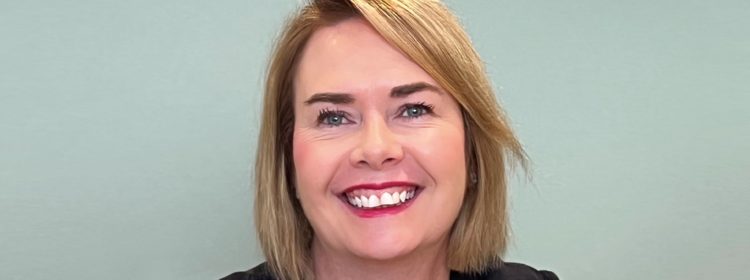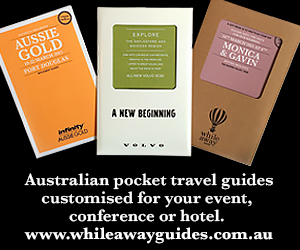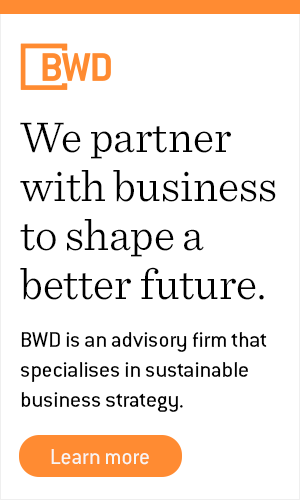Sydney-based Emma Bowyer, widely respected owner and Managing Director of successful professional conference organisers ICMS Australasia, has been involved in the events-management industry for the best part of two decades. Emma has personally managed some of Australia’s biggest conferences, winning Event of the Year on three occasions for events under her directorship. She previously held a tenured position at the University of Technology Sydney in the Faculty of Business. She spoke to The Siteseer about how business is evolving as the pandemic recedes.
Siteseer: What do you see as the key priorities for event organisers as we appear to be, finally, moving away from pandemic-induced challenges?
Emma Bowyer: We didn’t lay anyone off during the pandemic; I made the decision early on, before JobKeeper was announced. Our thirty-five staff have been with me for quite a while. They are mostly in their twenties and thirties and have given me their loyalty, and I believed I needed to support them in turn. Initially the outlook was that the pandemic might last six months.
Then, as the situation became worse, we switched to virtual meetings very quickly. By June 2020 we were among the first companies in Australia to be running a major meeting on-line, which we did with the University of Melbourne, for 1,400 people. At that time there was no virtual conferencing platform; we needed a technical person, almost like a film producer, to give us what we needed.
So with that as background, one of our key priorities is to fast-track some of the technologies we’ve been talking about for years. Another is to continue to use the technology that’s available to us to serve and retain clients. We’re working with clients on events for 2022 and 2023. How can we retain and expand on the skills we’ve learned in respect of virtual conferencing to suit them, we ask ourselves? How can we digitally capture some of the content that’s being produced, and monetise it? That’s a priority too.
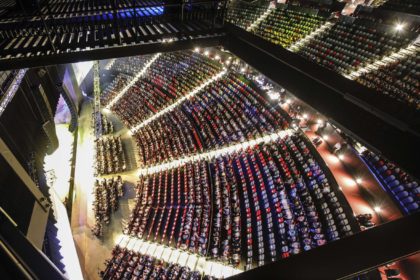 There’s been great restructuring in our industry that has helped us recover. Well before the pandemic we were thinking more and more about how we can work with clients in partnership models, rather than taking a blanket approach; rather than just saying these are our services and these are the prices.
There’s been great restructuring in our industry that has helped us recover. Well before the pandemic we were thinking more and more about how we can work with clients in partnership models, rather than taking a blanket approach; rather than just saying these are our services and these are the prices.
Now we’re doing much more customising, with clients working closely [and more productively] with us and the technology providers. For example we’ve got an international engineering conference coming up in May, with seventy countries and over seven hundred delegates.
And for the first time, the Sydney Convention Centre has come to us with a customised package covering cuisine, AV and layout. So we’re customising, and as we move forward we’re reconfirming with industry stakeholders, convention centres and hotels what the priorities are for us as a business, organising international delegates to come to Sydney, and internally continuing to use the technology that’s helped us get through the pandemic.
SS: The convention you’ve just mentioned; can you tell us a bit more?
EB: It’s a hybrid, which is interesting, an event that got rescheduled. It was supposed to be delivered in late 2021. The local host had spent ten years securing the meeting for Australia and was devastated when they had to contemplate going virtual. He’s an Emeritus Professor from Newcastle, and really didn’t want to do that. But as the weeks and months passed his international community said they were grateful for having a virtual alternative for those who couldn’t travel. The content is obviously not free; it’s seventy five percent of the normal registration cost, and conversely if you come in-person you’ll also get access to the virtual platform.
This is a strategy that’s working really well for the business community now, especially for people under thirty-five. In conferences in the past we’ve often had a younger student cohort among representatives. It’s been around ten percent generally, but it’s more than doubled for this event. Their employers realise it’s good for their growth and for their learning; they see it as investing in them.
SS: What new skills are needed to manage the virtual and hybrid meetings environment?
EB: In a way we’ve all become television producers. In the TV world you have second-by-second breakdowns, you pre-record material to mitigate risk, with strict production quality control, you can do things with animation, and the bigger your budget the better it looks.
So we’ve learned new skills in these areas, in event technology production and animation, and we’ve learned how to do things digitally that were never previously in our vocabulary. It’s affected everyone across the company. Even the receptionist hasn’t got away with not learning new skills.
SS: How can associations in particular monetise these new styles of business events?
EB: Good question. So first they must put a price on their content; they must never have any part of a conference offer that’s free. During the pandemic all of our clients have had a paid registration model. Social interaction’s not great on virtual, everyone concedes that. But if it’s the best that’s available, it’s great, and there’s so much you can offer. We’ve done quiz nights, hired people from overseas who can run things in multiple time zones and so on.
You must also capture content. We’ve been pre-releasing some content, for example, for a conference coming up in 2023. We’ve pre-recorded our plenary confirmed speakers, of which there are six, having told them to give us a three-minute grab of what they’ll talk about at the congress, reinforcing why people should register. That’s been unscripted and a huge success. We tell delegates that if they register by a certain date we’ll send them thirty minutes of great content. In incentivising in that way you can monetise.
Then the conference comes. Post-event you can go back to your membership and can couple-up, what we call splice, key content, highlights and even two-minute sections and earn money that way. That’s the future for associations, digitising content in a way that’s appealing for all of their members.
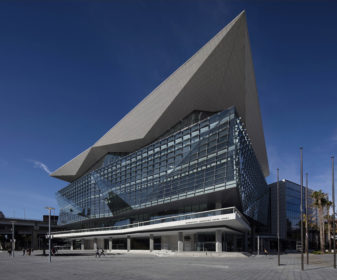 SS: How have target audiences changed?
SS: How have target audiences changed?
EB: They’ve become more discerning. That’s why some of the mid-level events are dropping off. Audiences are saying, if I’m going to travel I’m going to make my decision based on how good and significant the event and content is. What are the networking opportunities, and is there a special factor?
SS: How would you define mid-level?
EB: It relates to the subject matter. Take pathology. We’ve organised some pathology events, but there are divisions within that category, like forensic pathology, or genetic pathology for example. So you’ll typically have a world congress and people will divide up to meet to discuss their specialty, and all come together for a plenary. Now more of them are saying they’ll go to the big event, gain some extra knowledge, and for their own specialty they may access the virtual content. So whereas in the past someone might go to two or three conferences a year, they now might go to one instead, and do the other two virtually.
What kind of additional support for the industry would you like to see?
EB: In our industry many have talked about a central industry body that represents everyone. I understand the drive to represent parties is key but I think there are too many competing interests to do this well at the moment. In the end, the saying where there’s a political will, there’s a financial way probably rings true here.
SS: What in your view are the other major challenges facing businesses like yours?
EB: Maintaining quality. We’re in a maintenance period after a time of major change and working out where we grow from here. We’ve got our own staff conference in Alice Springs in July, and re-energising is a challenge for us and others. Everyone’s tired. But it’s not a bad challenge!
SS: Any other lessons you can share about your business and academic career?
EB: As you get older managing energy is important. I’ve found over time you sometimes put energy into things that could be better directed. Everyone has the same amount of time; it’s very democratic [in that sense], but the way you occupy it is vital. Stepping up into more of a consultancy role has been great for me personally. I’ve really enjoyed it. Prioritising and understanding the global and national landscape are very worthwhile directions for one’s energy.
SS: The recent international toxicology conference that was relocated to Sydney. Can you tell us a bit about that?
EB: We first ran the international toxicology meeting in 2015 in Brisbane. Then in 2018, a while ago now, I travelled over to Washington DC for an unrelated client, working on a space conference. While we were there we got an email from the toxicology client based in Melbourne. He learned I was in Washington and suggested I go to dinner with the president of the toxicology board. So off we went to the dinner in Washington with the president whom we’d never met before. We got on like a house on fire; he was with the FBI and very interesting to talk to.
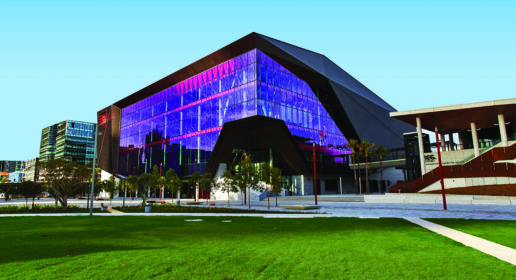 I passed on his details to my colleagues and in late 2021 we got a phone call from the client in Melbourne. He told us they were planning to have their meeting in South Africa, but after holding out for as long as possible, had decided to go virtual.
I passed on his details to my colleagues and in late 2021 we got a phone call from the client in Melbourne. He told us they were planning to have their meeting in South Africa, but after holding out for as long as possible, had decided to go virtual.
The association had never done anything virtual before, so the client asked us if we could help them. They said that even if fifty percent of their membership came on board and if we could construct something funky and fun like eighty talks in eighty minutes, we could construct a program.
So they set off with a target of three hundred participants and thirty thousand dollars in sponsorship. That was all over the Christmas period. In the end we had over eight hundred delegates, over a hundred thousand dollars in sponsorship, and three extraordinarily good days of programming and networking events. Each board member had ten minutes to talk about their country, so there was a tourism aspect. Someone walked through a gallery in Tokyo for example; it was very interesting.
The feedback they’ve had from their own communities has been outstanding. It blew away their expectations of what could be done with virtual conferencing. Now we’ve been appointed to do an event for them in 2023 in Hobart, and their world congress is coming to New Zealand in 2025 and we’ve been appointed for that.
SS: Also shows how valuable personal networking can be.
EB: It does.
SS: What’s your outlook now?
Very positive! People internationally have a fantastic appetite for coming to Australia. The Brisbane, Sydney and Melbourne bureaux we’re working with are pushing strongly to emphasise that it’s safe to travel, which is important to people. The fact we don’t have to have negative tests before getting on a plane any more and that COVID variants are becoming less virulent is a strong sign of recovery.
In the space we’re in it’s more important than ever to have conferences because scientists can innovate and share research. One of our clients was involved with developing the AstraZeneca vaccine at Oxford University, which has had fantastic outcomes. That can be highlighted across many disciplines. There’s good stories everywhere and conferences can reflect them.
Moving forward, for us, I see us helping clients get their message out better. Pathologists talking to pathologists is one thing but if you can let the world know what conference delegates do, through public lectures, media releases and advertising, that will be wonderfully interesting, informative and productive.
To contact Emma or ICMS Australasia, please click here.

